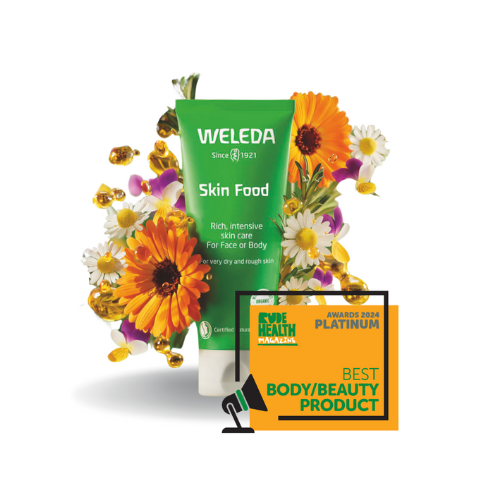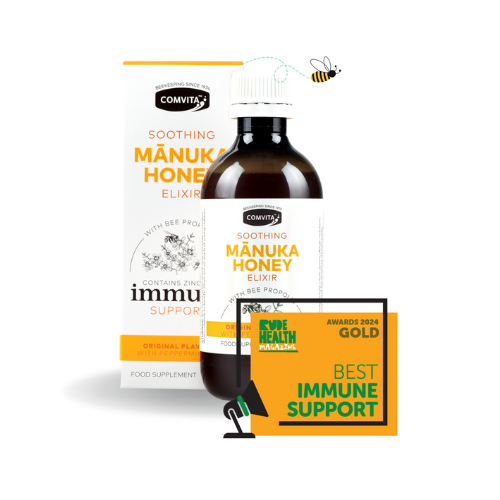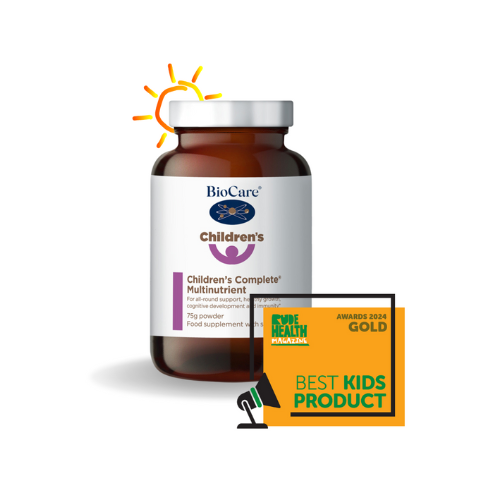Gut a problem? Discover the go-to products for your gut health
- Apr 25, 2024
- Posted by:
Does all health originate in our gut? Our gut is a key adaptive system that mediates many functions and is thus central to health and disease. But poor gut health, combined with the challenges of the modern life and our complex environment, can often leave us feeling uncomfortable, sluggish, and sensitive to foods.
If you find you are struggling with your gut health, you could be experiencing a range of symptoms from bloating, irregular bowel movements to food sensitivities. Gut function is complex and dependent on inter-related factors: balance of bacteria, digestion, gut integrity, and motility. We need all of these to work in harmony with each other for optimum gut health.
BioCare’s gut category range has been designed to support all these areas of gut health.
DIGESTION
Do you find it difficult to digest foods, perhaps resulting in bloating, burping or flatulence? Do some foods sometimes not agree with you?
You might need support for your digestion. Our bodies have a complex and powerful system of enzymes in our gut to help us break down foods into smaller particles and use them.
SUPPLEMENT SOLUTIONS FOR DIGESTION:
- Enzymes are powerful molecules to help break down foods into smaller particles, including proteases for protein, lipase for fats, lactase for lactose in dairy products, and amylase for carbohydrates
- Provides eight different digestive enzymes with distinct roles: bromelain, lipase, protease, amylase, cellulose, lactase, maltase and sucrase
- Designed to retain breakdown capability over a wide range of pH variances, all the enzymes are acid stable against stomach pH
- Vegetarian source, acid stable enzymes which are used to assist the body’s own natural process
- For everyday use, 1 capsule can be taken with every main meal
Bio Acidophilus is a blend of the unique, clinically researched LAB4 complex of live bacteria for everyday use
- Contains 20 billion per daily intake of the clinically researched LAB4 strains. The LAB4 complex is one of the most clinically researched combinations of live bacteria, consisting of two specific proprietary strains of Lactobacillus acidophilus, along with Bifidobacterium bifidum and Bifidobacterium lactis
- Human compatible strains that are bile and acid resistant and adhere to the gut wall
- Also contains FOS (Fructooligosaccharides) which help to maintain a healthy balance of beneficial bacteria, including Bifidobacteria, promoting healthy gut function
Need more support?
HCl & Pepsin is a combination of betaine hydrochloride (HCl) and the protein-digesting pepsin enzyme
- Hydrochloric acid is naturally found in the stomach and is essential for creating an acidic environment to enable protein digestion and activation of pepsin
- Also provides a high amount of pepsin which is a potent protease enzyme naturally produced in the human body, essential for breaking down protein in food into smaller peptide fragments and amino acids
- An acidic stomach environment is crucial for digestion, absorption of nutrients, immune protection, and enzyme activity. Different dietary and lifestyle factors including stress, as well as age, can reduce the body’s production of stomach acid
- Capsule form allows convenience and splitting dose throughout the day ensures maximum efficacy
BALANCE OF GUT BACTERIA
Do you have gut issues that started after a trip abroad, an upset stomach, or taking antibiotics? Are your symptoms worse after eating, especially foods high in sugar, carbohydrates, or yeast (bread, beer, wine), or fibre (vegetables or wholegrains)? Have you been told by a practitioner or done a test which indicated an imbalance of gut bacteria?
SUPPLEMENT SOLUTIONS FOR BALANCE OF BACTERIA:
A potent botanical complex with oregano, thyme, olive leaf, barberry & wormwood for gut health and balance of bacteria.
- Oregano, thyme, barberry, clove and olive leaf promote a healthy function of the gastrointestinal tract, as well as providing antioxidant, and anti-inflammatory support
- Thyme, oregano, olive leaf, and barberry also aid immunity, and the health of the urinary & respiratory tracts, providing comprehensive systemic support
- The plant oils have been freeze-dried to reduce irritation to the gut and promote absorption for systemic use
- Easy to swallow capsules allowing convenience and splitting dose throughout the day ensures maximum efficacy
Contains 30 billion of the clinically researched LAB4 live bacteria alongside FOS (Fructooligosaccharides) which help to maintain a healthy balance of beneficial bacteria, promoting healthy gut function. Use alongside MicroClear 2-4 hours away, for comprehensive, longer-term support, whereas MicroClear alone would be for up to 3 months.
GUT INTEGRITY
Do you react to certain foods like those containing dairy and gluten, perhaps with pain and discomfort?
You might need support for the integrity of your gut ‘mucous membranes’ (gut wall). Our gut lining is made up of multiple protective layers which guard us from toxins and pathogens. It is made up of thin mucosal tissue which is vital for nutrient absorption and colonisation of friendly bacteria.
SUPPLEMENT SOLUTIONS FOR GUT INTEGRITY:
– Gut support complex containing vitamin A, zinc, and ginger to support the mucous membranes, the intestinal tract, and inflammation, with L-glutamine, nucleotides, and live bacteria.
- A unique combination of L-glutamine, N-acetyl glucosamine, nucleotides, alpha lipoic acid, ginger, live bacteria including Lactobacillussalivarius, vitamins A, C, and zinc
- Vitamin A supports the gut wall (the mucous membranes of the digestive tract) and the function of the immune system, and vitamin C and zinc contribute to the protection of cells from oxidative stress. Vitamin C also supports collagen formation
- Ginger helps to support digestion, contributing to the normal function of intestinal tract and may also help to manage inflammatory responses
- Nucleotides are the building blocks of our DNA, especially needed for the fast-replicating cells of the digestive tract. Our needs for nucleotides increase during periods of stress, illness, or injury
- Easily mixed into liquids. An alternative to tablets or capsules or for those with digestive and absorption difficulties
Prefer a capsule?
A unique and powerful nutrient complex combining a blend of L-glutamine, N-acetyl glucosamine, and live bacteria.
- Per daily intake, Permatrol provides 750mg of L-glutamine and 450mg of glucosamine, as well as 66iu of vitamin E, 120mg of gamma oryzanol and 1 billion live bacteria
- Vitamin E is a potent antioxidant that contributes to the protection of cells from oxidative stress
GUT MOTILITY
Do you have issues with irregular bowel movements? Do you sometimes feel the urgency to ‘go to the toilet’, or perhaps pass a bowel movement less often than once a day?
You might need to support your ‘gut motility’. The movement of food and fluid through the digestive tract is essential to digestion, absorption, and excretion. Disrupted motility and consequent slowing down or speeding up of this process can contribute to a number of uncomfortable symptoms and will also have wider implications such as nutrient malabsorption and impaired detoxification.
SUPPLEMENT SOLUTIONS FOR GUT MOTILITY:
Prebio NutriPowder – A unique blend of plant fibre including marshmallow, inulin, FOS, GOS, arabinogalactans, and resistant starch for digestion and regular bowel movements
- Fructooligosaccharides help to maintain a healthy balance of beneficial bacteria, including Bifidobacteria, promoting healthy gut function
- Also includes marshmallow which helps to support digestion and regular bowel movements., as well as apple pectin and acacia gum
- Easily mixed into liquids. An alternative to tablets or capsules or for those with digestive and absorption difficulties
Need more support? Try pairing with our Bio Acidophilus – A blend of the unique, clinically-researched LAB4 complex of live bacteria for everyday use.
STOMACH FUNCTION
Do you need to soothe your digestive system, especially your stomach and throat?
The digestive tract provides a protective barrier that protects us from the outside world, but also from the powerful enzymes and acids that we produce during digestion. Sometimes, we may have an imbalance of enzymes or acid, they may be produced at the wrong times, or our mucus membranes may need support.
SUPPLEMENT SOLUTIONS FOR STOMACH FUNCTION:
Slippery Elm Intensive is a higher strength powder option containing slippery elm & marshmallow to support digestion, the mucous membranes, and soothe the gastrointestinal tract with gamma oryzanol and cinnamon.
- All-in-one, high strength powder blend of slippery elm with liquorice and aloe vera to support and soothe the digestive system
- A unique, potent and synergistic combination including marshmallow, gamma oryzanol, zinc and cinnamon
- Slippery elm soothes the digestive tract and is a source of mucilage, which supports mucous membranes in the body. Liquorice helps support digestion and particularly helps to maintain balance and comfort in the digestive system
- Use at full dose for optimum effect, or split the powder dose between meals
Prefer a capsule?
Slippery Elm Complex – Contains slippery elm & marshmallow to support digestion, the mucous membranes, and soothe the gastrointestinal tract, with gamma oryzanol.
- A combination of slippery elm powder, marshmallow root and gamma oryzanol.
- Marshmallow supports gastrointestinal health
- Slippery elm soothes the digestive tract and is a source of mucilage which supports the mucous membranes
Credit Article BioCare : https://www.biocare.co.uk/news/gut-a-problem.html



















